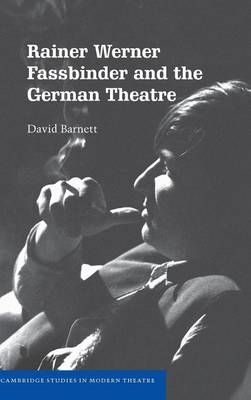Cambridge Studies in Modern Theatre
2 total works
The Berliner Ensemble was founded by Bertolt Brecht and his wife Helene Weigel in 1949. The company soon gained international prominence, and its productions and philosophy influenced the work of theatre-makers around the world. David Barnett's book is the first study of the company in any language. Based on extensive archival research, it uncovers Brecht's working methods and those of the company's most important directors after his death. The book considers the boon and burden of Brecht's legacy, and provides new insights into battles waged behind the scenes for the preservation of the Brechtian tradition. The Berliner Ensemble was also the German Democratic Republic's most prestigious cultural export, attracting attention from the highest circles of government, and from the Stasi, before it privatised itself after German reunification in 1990. Barnett pieces together a complex history that sheds light on both the company's groundbreaking productions and their turbulent times.
Using extensive and untapped archival material as well as a series of in-depth interviews with Fassbinder's main theatre associates, this book offers commentary on and insights into Fassbinder's plays, his dramaturgies and staging practice. David Barnett helps to unlock the much discussed theatricality of Fassbinder's films by showing its many concrete sources. The first study of Fassbinder's work in the theatre, as a playwright and director, this book gives a full contextualisation of his work within the upheavals of its times. Readers are introduced to the cultural history of the West German theatre in the late 1960s and early 1970s. Radicalism in society meets experiment on stage as Fassbinder emerges from the cellar theatre scene of Munich, co-founds the antiteater and is then integrated into the most subsidised theatre in Europe, before being offered his own theatre to run for one fateful season.

